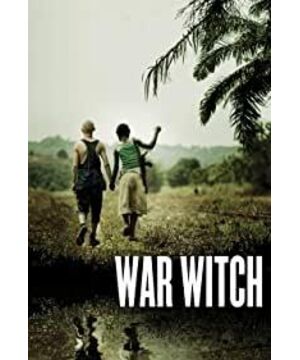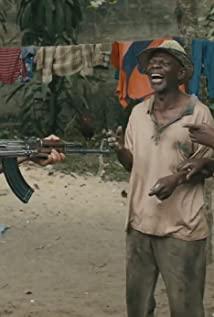I have been thinking about why I want to read the history of black Africa, to see how hard they are, and after self-examination, I feel that this is a more wretched mentality.
It is also an anti-government guerrilla war, and the Chinese have done a great job. No matter what kind of war and chaos, China always has a kind of strength that can be twisted. No matter how good or bad life is, whether it is democratic or not, the Chinese people today are asking for a happy birthday. All in all, looking at these miserable alien people, the condescending sense of pity can't help but grow.
Think carefully about what these black African people are missing, so trapped in the quagmire of modernization that they cannot extricate themselves? Cultural accumulation is the first thing that comes to my mind. The Western powers entered into the small social space bred and faced by the previous tribal civilization, and it is not very complicated. Survival in nature has always been the central theme of the lives of these civilizations. The foundation of modern civilization brought by the West is based on highly complex social relations and on the basis of survival in the social world. Therefore, this kind of transplantation must bring about the disintegration of the old social and ecological order. Because of the lack of historical accumulation of dealing with anomie, the destructiveness and persistence of anomie must be far superior to other civilizations.
The above thinking seems to be as objective as possible, but it always implies a preconceived prejudice. Modern civilization seems to be more advanced than tribal civilization. People in tribal civilization should try their best to improve their lives and realize the modernization of their own lives through modernization. But in essence, it is the modernization that has worsened the living conditions of these people and intensified the danger of conflicts between them. Instead, they are lost in the pursuit of modernization. Modernization destroys the civilization and living habits accumulated in their tribal life, and also requires the modernization of Western countries in an environment unsuitable for modernization. Therefore, what we see seems to be a mixed-race monster of modern civilization and tribal civilization with only the remaining drawbacks, people with lethal weapons of modern civilization, environmental pollution and unequal international trade, but living in the simple social governance system of tribal civilization, In a situation of fragile resilience.
The film throws out a cruel reality and leaves the audience with a heavy heart, but is always reluctant to define itself as a film with a tragic theme. Whether it is for the protagonist or the people who live in it, there is a glimmer of hope in the bleak prospect, that is, a path of seeking roots, combining autonomy and confidence.
The independence and self-determination implied by autonomy have been realized for Africa today, but the real equality of relations with the suzerain in all aspects is far from being realized. But at least the people working in the orchards in the film seem to remind the audience that despite all the difficulties and inequalities, there is still hope if they can work and produce. Komona's burial of the parents he killed with his own hands constitutes the theme of the third part of the film, and what he is alluding to is the hope that these peoples in the flood of modernity will pick up their own civilization, even if it is destroyed and difficult to find. To achieve spiritual growth, this retrospective ritual is indispensable. The optimism that flashes from time to time in the film seems to add to the bitterness, but the bitterness becomes sweeter as the film becomes more painful, whether it is the government soldiers who help komona, or the uncle of her husband magician , or the driver who hitched a ride at the end of the film, constantly mobilized the audience's emotions. These certainly do not indicate the optimism the director is trying to convey.
Finally, about the title of this text, mainly borrows the original title of the film rebell (rebellion) and the style trend of the whole film, and laments the persistence of komona and the people who live in it and the resilience of their lives.
View more about War Witch reviews











